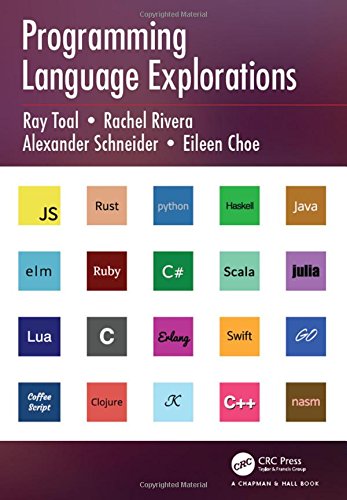

Most ebook files are in PDF format, so you can easily read them using various software such as Foxit Reader or directly on the Google Chrome browser.
Some ebook files are released by publishers in other formats such as .awz, .mobi, .epub, .fb2, etc. You may need to install specific software to read these formats on mobile/PC, such as Calibre.
Please read the tutorial at this link. https://ebooknice.com/page/post?id=faq
We offer FREE conversion to the popular formats you request; however, this may take some time. Therefore, right after payment, please email us, and we will try to provide the service as quickly as possible.
For some exceptional file formats or broken links (if any), please refrain from opening any disputes. Instead, email us first, and we will try to assist within a maximum of 6 hours.
EbookNice Team

Status:
Available0.0
0 reviewsProgramming Language Explorations is a tour of several modern programming languages in use today. The book teaches fundamental language concepts using a language-by-language approach. As each language is presented, the authors introduce new concepts as they appear, and revisit familiar ones, comparing their implementation with those from languages seen in prior chapters. The goal is to present and explain common theoretical concepts of language design and usage, illustrated in the context of practical language overviews.
Twelve languages have been carefully chosen to illustrate a wide range of programming styles and paradigms. The book introduces each language with a common trio of example programs, and continues with a brief tour of its basic elements, type system, functional forms, scoping rules, concurrency patterns, and sometimes, metaprogramming facilities.
Each language chapter ends with a summary, pointers to open source projects, references to materials for further study, and a collection of exercises, designed as further explorations. Following the twelve featured language chapters, the authors provide a brief tour of over two dozen additional languages, and a summary chapter bringing together many of the questions explored throughout the text.
Targeted to both professionals and advanced college undergraduates looking to expand the range of languages and programming patterns they can apply in their work and studies, the book pays attention to modern programming practice, covers cutting-edge languages and patterns, and provides many runnable examples, all of which can be found in an online GitHub repository. The exploration style places this book between a tutorial and a reference, with a focus on the concepts and practices underlying programming language design and usage. Instructors looking for material to supplement a programming languages or software engineering course may find the approach unconventional, but hopefully, a lot more fun.